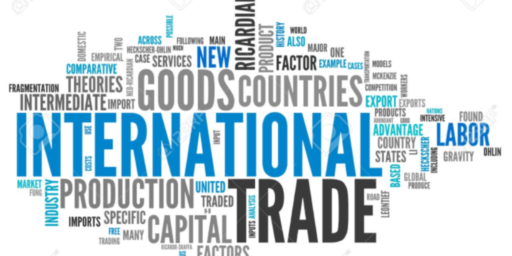Barack Obama: Oil Markets are Different
Barack Obama signals that he may not know that much about economics,
Are oil companies, I ask, more morally culpable than other industries that would not be subject to Obama’s proposed tax?
“Not in the view of most economists,” Obama replies. “I’m well aware of the argument (about) singling out oil companies rather than soda pop manufacturers,” he says.
Yes, but what does Obama himself believe? “I think oil companies are amoral. They want to make as much money as they can for their shareholders, which is what corporations do,” he says. “The difference is the nature of the kind of outsized profits they make that may have no relationship to their investments or their production. The fact, for example, the shortage of refinery capacity could actually increase their profits so the less they invest the more they make indicates that you are not dealing with someone making widgets out there.”
Unfortunately for Senator Obama it is true for any industry that when there is reduced investment in capacity prices go up as do profits. The idea that the oil market is somehow special is a specious argument. For example, a policy that gave an incentive to farmers to leave land fallow instead of planting crops is designed to increase the price of said crops and increase the profits for the farmers/firms involved. And lets be clear one reason we aren’t seeing new refineries being built is, at least in part, due to government regulations.
Of course I expect this kind of pandering nonsense form politicians.
Via Greg Mankiw






I must say that I’m baffled by the lack of attention paid to the companies that’ve benefited under the 1999 Copyright Extension Act. Now those are real windfall profits.
The real pandering that has occurred is the Republican and Conservative blurring of the separation between church and state. Capitalism is an economic reality that has nothing to do with christianity or any other religion. They are mutually exclusive events. Somehow the sheep have been lead to blend capitalism, christianity and democracy into one big beautiful path on the way to the Second Coming – don’t know how that could have happened.
But it turns out that maybe the Second Coming is that note coming due on the second mortgage.
This has absolutely nothing to do with what Obama actually knows or thinks. He is saying what he believes will get him elected. If the public is stupid enough to elect him because of it, they deserve him and whatever happens to them because of it.
P.S. Isn’t there some way you can add Obama to your dictionary so Check Spelling doesn’t hiccup on it?
Give the man credit, at least he is consistent. He doesn’t know much about anything else either.
This is specious as well since there is no “ban” on expanding capacity, only more environmental oversight. Which, if you’ve ever been near refineries, is no small matter. If the oil companies wanted to, i.e. had an incentive, they would build new refineries within the new regulations. However, because they make more profit from NOT building more capacity, they are perfectly happy to not do so.
Also, your comparison to agriculture is a comparison with a subsidized industry AND this particular subsidy had other benefits like restoring land productivity and reducing erosion, both outcomes that improve returns in the long run.
Any other examples of industries who make more money by not investing their profits?
“Any other examples of industries who make more money by not investing their profits?”
Standard operating procedure for Monopolies.
Obama isn’t arguing that the principle is unique to oil. He’s arguing that the conditions exist with oil to create the situation (extremely so), where they don’t in most other markets. Whether that’s sufficient reason to support his tax policy is open to debate, but the observation seems accurate to me.
If you only look at the total dollar value, then sure, Exxon makes huge profits. But if you look at the percentage return on sales, Exxon and all oil companies do pretty poorly.
The only reason for the very large-sounding numbers is that the sales volume is so high. But the margins are very low.
More if you’re interested. (No, not blog-whoring.)
I don’t mean to be snarky, but so what? The bottom line (right) is that they have high profits. That they have low margins is beside the point, I would think, given the lack of any real competing product.
Since the last new oil refinery was built in the US in 1976 US crude oil production has fallen about 40%. And even if we “drill,drill, drill” that trend is extremely unlikely to change.
Why in the world do we need new refineries?
Refining is already one of the least profitable industries in the US and you want to build more.
Don’t you know that poor profits is the markets way of telling us we do not need more refineries.
Why do all the conservatives think they know more about the refining industry than the market?
The oil market is different than most for a couple of reasons but it still follows basic economic rules.
Oil is special mostly because of it’s inelastic demand curve. Jumps in price of 50% yielded reductions in demand of less than 5%. There aren’t many products that can do that.
Oil is also special because of the geopolitical power attached to it. Most of the worlds oil is government controlled and those governments know what power it holds. The incentives to manipulate the market for political goals are there and we have seen oil used as a political tool already.
From drilling to burning in engine cylinders oil and it’s refined products are subject to environmental regulation. These are constantly changing and the penalties for even small violations are steep. When it comes to investing in refineries the investors must not only estimate return on investment but also what other risks they may incur from regulators and potential lawsuits. This is a real externality with real effects on the standard economic models.
So the oil market is different but I suspect Obama sees only the differences that fit his particular politics, anti-business and pro-government regulation.
Say, Senator Obama wasn’t one of the signatories on the missive from one hundred or so University of Chicago professors all upset about naming something after Milton Friedman, was he?
Sorry, Steve P, but the previous commenter had it right: the issue of refineries has been covered, and anybody who claims at this point that they haven’t been getting built because of environmental laws is either criminally misinformed or simply a liar.
Is there some subject he does know a lot about
If a bunch of little companies all eked out very small returns on sales, and if they were only decent investments under very favorable economic conditions, you wouldn’t think to inflict a punitive “windfall profits” tax to them. The same thing is happening here, except it’s one big company getting mediocre returns on its sales.
So what this really amounts to is a tax on large corporation size, not on exorbitant profits. It’s hard to see why this is a good idea, and it’s certainly not how it’s being sold to us.
M1EK,
You know better than to use a cheap rhetorical device like that. Those who disagree with you could easily say your position misinformed or that of a liar. Facts and logic are needed.
Environmental regulations cost money and those costs make a difference to the profitability of a refinery so they have to have an effect. That effect is enough to make it too risky to build new refineries. Those regulations also cost time and time is money. The delays caused by environmental lawsuits along with the chance of being denied permits is enough to stop refiners from even attempting to build new facilities.
For the record I am informed and usually not a liar.
“”Refining is already one of the least profitable industries in the US and you want to build more.””
“”””””””””””””””””””””””””””””””””””””””””””””””””””””””””””””””””””””””””””””””””””””””””””””””””””
I am not familiar with every industry’s profitability, but I am aware of one single-train sour crude refinery that has made more than 30 million dollars per month in clear profit for at least the last ten years. It is not a large refinery, but it is modern [built in 1972].
It started life as a 160,000 BPD refinery and has been expanded to process 275000BPD through debottlenecking and on site improvements.
The original cost of grassroots development was $300,000,000, including land acquisition.Twenty years later, a single addition to one unit for low sulfur diesel was $150,000,000. A refinery requires constant investment in the millions in running maintenance,with a major turnaround every 3-4 years. Plus they must meet evermore stringent environmental and safety standards.
They are compensated well for their efforts, but the risk is huge and I doubt that they would make such huge investments without the expectation of commensurate returns.
Only Carl Sagan himself could adequately describe what a new grassroots refinery would cost. Let’s just say…….Billions and Billions!
Oil companies need to be huge, with huge cash flow to remain in business, This also makes them a highly visible and easy political target, which is sometimes justified and sometimes not, but always complicated.
“Not in the view of most economists,†Obama replies. “I’m well aware of the argument (about) singling out oil companies rather than soda pop manufacturers,†he says. ( Soda companies have ROI twice the rate of Exxon )
Yes, but what does Obama himself believe? “I think oil companies are amoral. They want to make as much money as they can for their shareholders, which is what corporations do,†he says. “The difference is the nature of the kind of outsized profits they make that may have no relationship to their investments or their production. ( What does he think ROI Means?) The fact, for example, the shortage of refinery capacity could actually increase their profits so the less they invest the more they make indicates that you are
This is a stupid argument. At least McCain does not pretend to understand the ecomey.